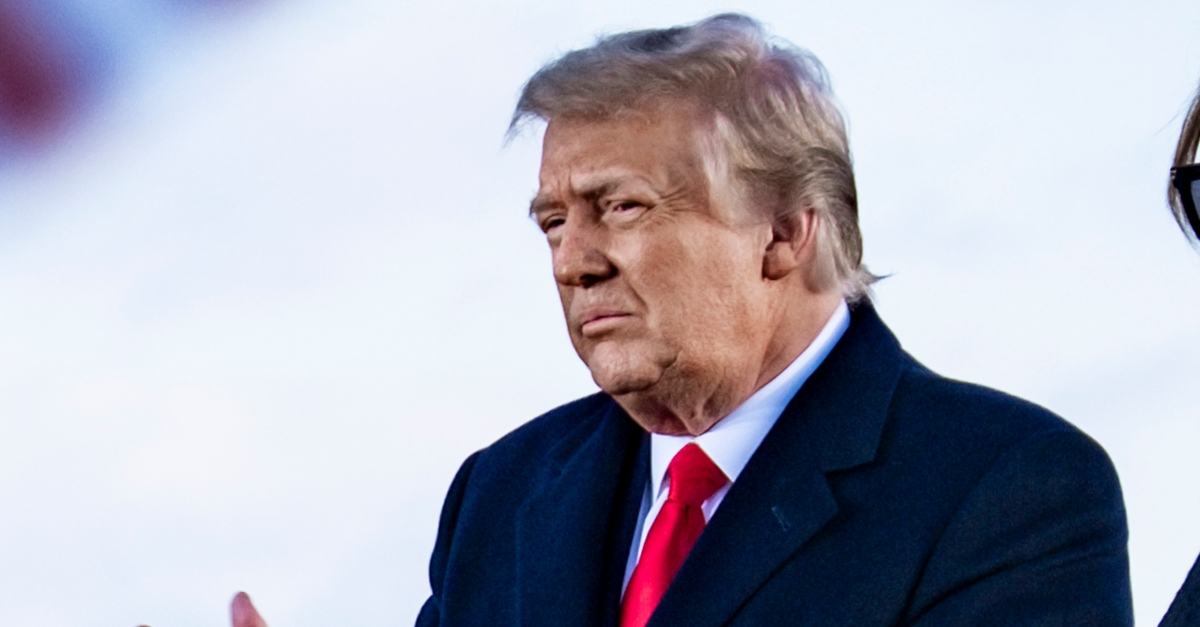
A federal judge on Wednesday ruled that House Democrats must be granted access to some of Donald Trump’s personal financial documents and certain real estate records in a decision issued more than two years after the former president’s personal accounting firm was first subpoenaed. In light of a Supreme Court decision from July 2020, however, the court also narrowed the scope of that subpoena, meaning congressional investigators will not be permitted to obtain all of the documents they initially sought.
Judge Amit Mehta, an appointee of Barack Obama on the U.S. District Court in Washington, D.C., held that accounting firm Mazars USA LLP must provide the House Committee on Oversight and Reform with Trump’s personal financial records from 2017 and 2018. The firm must also turn over documents related to Trump’s lease agreement with the General Services Administration (GSA) for the Old Post Office Building in D.C., which houses the Trump International Hotel.
But Mehta, who last year ruled that “courts must presume Congress is acting in furtherance of its constitutional responsibility to legislate and must defer to congressional judgments about what Congress needs to carry out that purpose,” said that greater scrutiny was now required to comply with the latest Supreme Court precedent.
Mehta reasoned that high court’s ruling in Trump v. Mazars meant that House Democrats were not entitled to documents “that do not involve the Presidents papers,” preventing them from getting a large swath of Trump’s records from before he was president. The subpoena originally demanded documents associated with Trump’s businesses dating back to 2011.
“This court previously allowed the Committee’s demand for President Trump’s financial records to proceed without qualification. But, applying the greater scrutiny required by Mazars, the court cannot now go so far,” Mehta wrote. “The court holds that the Committee’s asserted legislative purpose of bolstering financial disclosure laws for Presidents and presidential candidates does not warrant disclosure of President Trump’s personal and corporate financial records when balanced against the separation of powers concerns raised by the broad scope of its subpoena.”
Providing more context, Mehta said that Congress’s “limited legislative need” for Trump’s financials prior to assuming office “cannot justify the degree to which [the subpoena] imposes on the separation of powers, even in the case of a former President.”
“The more Congress can invade the personal sphere of a former President, the greater the leverage Congress would have on a sitting President,” he added.
But because Congress has a duty to oversee the president’s foreign business interests via the Emoluments Clause, Mehta reasoned that Trump’s financial records during his presidency were fair game.
“By contrast, the Committee’s other stated justifications for demanding President Trump’s personal and corporate financial records—to legislate on the topic of federal lease agreements and conduct oversight of the [GSA’s] lease with the Old Trump Post Office LLC, and to legislate pursuant to Congress’s authority under the Foreign Emoluments Clause—do not implicate the same separation of powers concerns. The records corresponding to those justifications therefore must be disclosed,” he concluded. “Applied here, Congress’s power to consent—or not consent—to foreign emoluments allows it to enact laws that are ‘derivative of, and in service to, [that] granted power.’ If Congress cannot mandate disclosure pursuant to its consent authority, one wonders how it could possibly exercise that authority effectively. Presidents could simply conceal foreign emoluments from Congress to avoid scrutiny—a result contrary to the Framers’ intent.”
Trump reportedly intends to appeal.
Read the ruling below.
[image via Pete Marovich /Pool/Getty Images]
Have a tip we should know? [email protected]